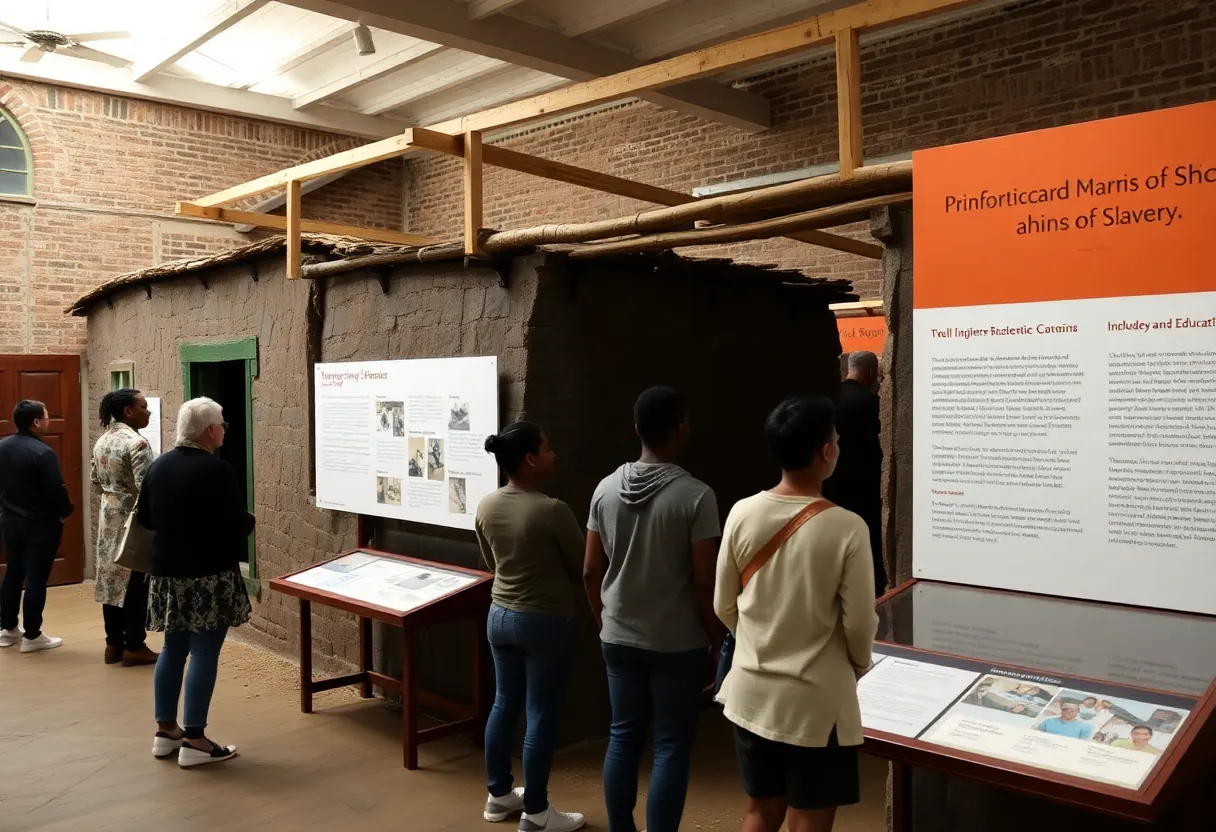News Summary
The Owens-Thomas House and Slave Quarters in Savannah remains unaffected by President Trump’s Executive Order 14253, which aims to eliminate diversity initiatives in museums. Concerns arise over the directive’s impact on museum practices and funding, particularly for smaller institutions. The Owens-Thomas House, known for its inclusive historical reinterpretation, continues to emphasize the importance of diverse narratives in education and culture.
Savannah’s Owens-Thomas House Responds to Federal Executive Order Amid Concerns Over Museum Diversity Efforts
The Owens-Thomas House and Slave Quarters in Savannah remains unaffected by President Donald Trump’s Executive Order 14253, which seeks to dismantle diversity, equity, and inclusion initiatives in national parks and historic sites. However, concerns have been raised regarding the order’s implications for broader museum practices and the narratives presented across the museum landscape.
This executive order requires federally funded museums to remove material identified as “divisive” or promoting “race-centered ideology.” The repercussions of this directive could pose challenges to renowned institutions such as the National Museum of African American History and Culture, which is part of the Smithsonian Institute.
Historical Reinterpretation at Owens-Thomas House
The Owens-Thomas House began reinterpreting its exhibits in 1989 to include the narratives of enslaved individuals. This shift was marked by the discovery of well-preserved slave quarters, enhancing the site’s historical offerings. The museum’s commitment to telling a comprehensive story of history began in earnest during the 1990s, drastically altering the way slavery is represented in local educational and cultural narratives.
As a result of these inclusivity efforts, the museum has noted an increase in visitors from diverse backgrounds, reinforcing the significance of representation and community engagement within its exhibitions.
Concerns from Local Museums
Telfair Museums’ Educational Initiatives
Telfair Museums is recognized for its educational initiatives on the history of slavery, notably through the Owens-Thomas House. The site aims to delve deeper into the legacies of slavery and how they connect to contemporary issues of inequality. To facilitate this, a panel discussion titled “Interpreting Slavery in Historic Contexts” has been scheduled for March 8 at the Jepson Center, featuring experts in public history.
Additionally, research from Georgia Southern University is being utilized to further enrich the understanding of enslaved individuals in local house museums, supporting the ongoing re-examination of historical narratives across various institutions.
Broader Implications of Reinterpretation Efforts
The reinterpretation efforts at the Owens-Thomas House are part of a growing trend among plantations and historic sites to adopt inclusive narratives surrounding slavery. As the national climate regarding discussions of race and history evolves, institutions are finding value in addressing complex legacies and fostering connections to present-day societal issues.
As local museums navigate the changes spurred by federal policies, the Owens-Thomas House exemplifies a commitment to comprehensive education and the importance of involved dialogues regarding the history of slavery.
Deeper Dive: News & Info About This Topic
HERE Resources
Genesis Motor America Enhances Youth Education in Coastal Georgia
Savannah School’s Living Wax Museum Event Faces Challenges
Additional Resources
- Savannah Now: Trump’s DEI Cuts and Museum Funding
- Fox 28 Savannah: Owens-Thomas House Preservation Project
- The New York Times: House Tours in Savannah
- Encyclopedia Britannica: Museum
- Google Search: Savannah Owens-Thomas House

Author: STAFF HERE SAVANNAH WRITER
The represents the experienced team at HERESavannah.com, your go-to source for actionable local news and information in Savannah, Chatham County, and beyond. Specializing in "news you can use," we cover essential topics like product reviews for personal and business needs, local business directories, politics, real estate trends, neighborhood insights, and state news affecting the area—with deep expertise drawn from years of dedicated reporting and strong community input, including local press releases and business updates. We deliver top reporting on high-value events such as Savannah Music Festival, St. Patrick's Day Parade, and Savannah Jazz Festival. Our coverage extends to key organizations like the Savannah Area Chamber of Commerce and United Way of the Coastal Empire, plus leading businesses in aerospace, education, and logistics that power the local economy such as Gulfstream Aerospace, Savannah College of Art and Design, and Colonial Group. As part of the broader HERE network, including HEREAtlanta.com and HEREAugusta.com, we provide comprehensive, credible insights into Georgia's dynamic landscape.



